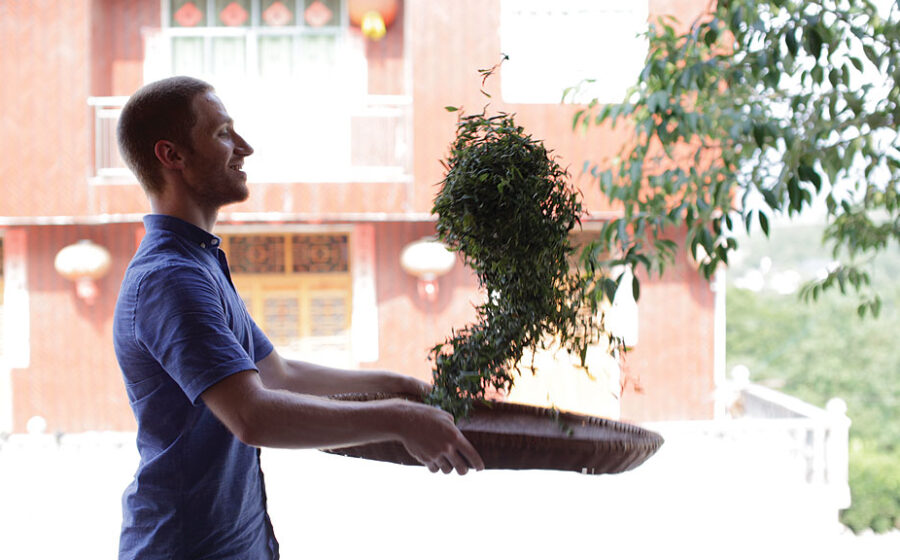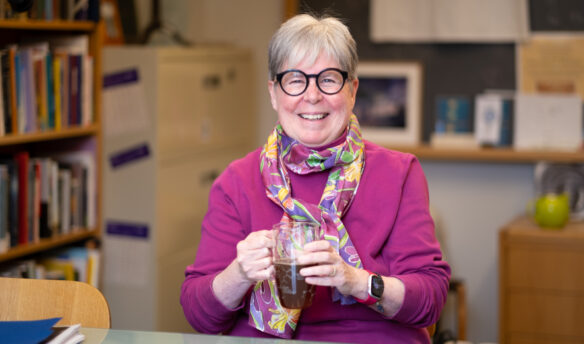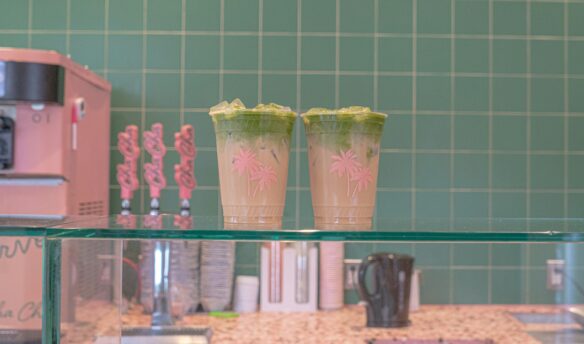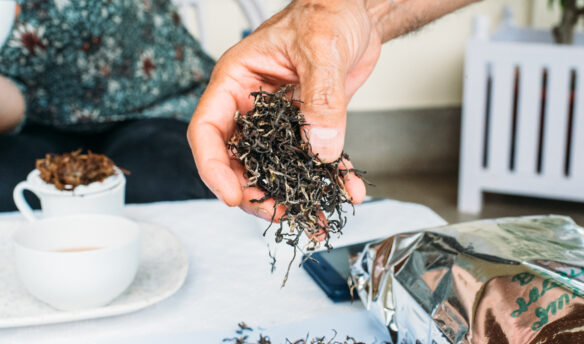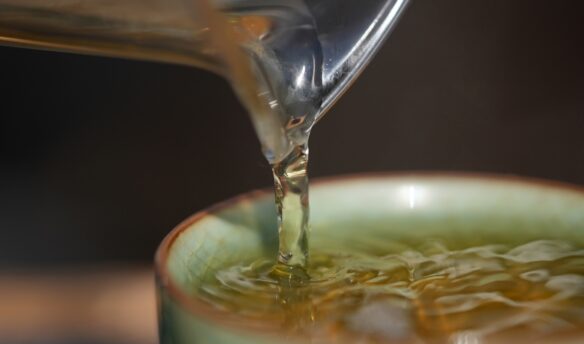[J]effrey McIntosh has about a decade head start on the rest of us, so when you read that he’s twenty-five, you must keep in mind that he’s worked in tea for more than eight years and has owned McIntosh Teas, his first tea company, for more than six years. He speaks Mandarin and has worked in China since he was a teenager.
His tea experience outstrips his age by a mile.
McIntosh’s tea life began when he finished high school at fifteen and began a course of culinary and photography work, which led him to a small Seattle tea shop called Seattle’s Best Tea, where he fell in love with tea and began to study it. When he was seventeen and eighteen years old, he was in Kunming, Yunnan, serving Chinese customers ultra-premium pu-erh teas for fourteen hours a day at Denong Tea, owned by his tea master Luo Wan Yu.
He returned to the Northwest and began selling pu-erh—very expensive pu-erh—to a small set of clients. McIntosh launched his current project, Teabook, at the Founder Institute, a hyper-competitive, four-month entrepreneurship startup program. Through Teabook, a subscription startup service, he hopes to expand the reach of tea, really great but affordable tea, to a wide audience.
This interview has been edited for clarity and space.
Now, even though you were the sort of kid who finished high school early and got yourself into a really amazing opportunity to learn tea in Yunnan, you were a kid adrift. Luo Wan Yu spent about as much time straightening you out as teaching you tea.
I was going down a destructive path. I didn’t have many business habits, family habits, or responsibility habits. She brought back a lot of that through endearment, through Chinese culture, which is criticism. But it was so tied in with her tea business. Everything she does is about tea, educating people about pu-erh tea. When we sat down every single day and prepared tea and talked about pu-erh tea, we would talk about the aroma or the taste or the temperature at which you were doing it. The majority of my time and my interaction with her while I was in China was literally ten a.m. until midnight every day at the tea shop. I think being around people who are, one, very successful and have very good habits for long periods of time can have a huge impact, especially for someone my age. I think it was inevitable for me to relearn behavior about how to live and how to conduct business in China. Without that year foundation of being in close proximity with Luo Wan Yu and seeing her conduct business, I would have extreme difficulty sourcing good quality tea without knowing how Chinese culture and business works.
Last time we talked, you said several times that you need your tea to be clean. What does that mean?
This is why I go to China so often: you need to see that there are no pesticides involved. Then it needs to be affordable, then it needs to taste good. People don’t care about organic, believe it or not. They care about organic when there are too many options and there is no differentiation between products they are buying. Then the USDA certification matters. This is the other big problem with sourcers in China: the USDA certification is not approved or allowed in China. They don’t care about it.
With tea, having an organic certification doesn’t mean that it’s going to be a good tea. If you want real tea, if you want to classify that, you would say you want the right varietal of tea, it needs to be grown in the correct region, then it needs to have the right process, then it needs to be grown without pesticides. Without pesticides, that proves it’s the right varietal in the right region with the right process. Then the last one is it has to taste good. That’s what real tea is. And that’s more beneficial than a USDA organic certification. The problem with that is that we’re so ingrained with marketing and these terms and what’s healthy that once you start clinging to a certain health term, you disregard the cultural and historical component that makes tea good.

One of the shifts you’ve said you’d like to see in the US is tea becoming more a lifestyle than a beverage. What do you mean by that?
Everyone in Yunnan has a tea tray at home. That’s what you do, when someone arrives at your house you go and drink tea, and everyone knows that. The majority of people will drink green tea or red and they won’t even think about it, they put it in their tumbler and they go drive their taxi all day. And then when you say, my friend knows tea, and you go to their house, it’s a whole other level. They’ve been storing tea for twenty-five years, they have tinctures and herbs, and they know much about the culture and the history, and they have a tea master. Everyone in China has a friend like that. Access to a higher quality is very, very readily accessible. It’s more open. That’s the type of opportunity, I think, even if we only get 10 percent of that opportunity here in America, you build a huge market.
The ready-to-drink beverage doesn’t do this, you argue.
It’s really simple, give them that experience to drink that cup, rest for a minute, experience it, smell it, see how it feels. That’s where the opportunity is. When it goes as a beverage, you take that experience away from the consumer by preparing the tea ahead of time, by prepackaging it. Then there is no aroma aspect, there is no preparation aspect, there is no understanding of where this came from before it was in that cup.
How did the Founder Institute change your understanding of tea?
Radically. Before the Founder Institute with McIntosh Tea I still had a lot of my own—I think elitist is a strong word but it’s the best way to explain it—elitist standards. I didn’t really have any framework for the American consumer. Once you get so into tea, and you get so into a high-end philosophy, it’s hard to think differently. A lot of my mentors would say, why don’t you sell some green tea to people, then maybe later on they can drink pu-erh. I would be like, oh, I don’t want to sell crappy tea.
But then the Founder Institute brought me a strong foundation of business knowledge, of how you need to make certain profits and create revenue streams and get customer acquisition. Then I said, it’s not about having the best tea in the consumer’s hands; it’s about giving them the opportunity that if they want that one day, they can go that next step to a pu-erh tea or a Yixing pot or a gaiwan. It really forced me to go learn about green tea, white tea, oolong tea, and red teas, find a really affordable source that still tastes good to my standards. It pushed my thinking: OK, I have quality, now how do I get consumers an affordable price and give them what they want? It gave me a great business foundation. All I needed to do was open that door to as many people as possible, to put great tea into the hands of as many people as possible.
You had the Chinese business education down, but this gave you your American business knowledge.
Yeah. It was better than any college. They are so intense.
You decided to get into tea at about sixteen. How has your relationship with tea evolved?
There’s not much in my life that I can appreciate with this long-term exposure. It’s second nature. I wake up and drink tea. If I don’t do it, there’s something that’s missing. It’s gotten to be a total lifestyle and behavior. I wouldn’t be me without it. I don’t have this weird, eager desire to go out of my way to drink tea like I had in the first couple of years. I don’t need that eager desire to go and drink tea because I do it everyday and I have those precious moments every day.
—Cory Eldridge is Fresh Cup‘s editor.


